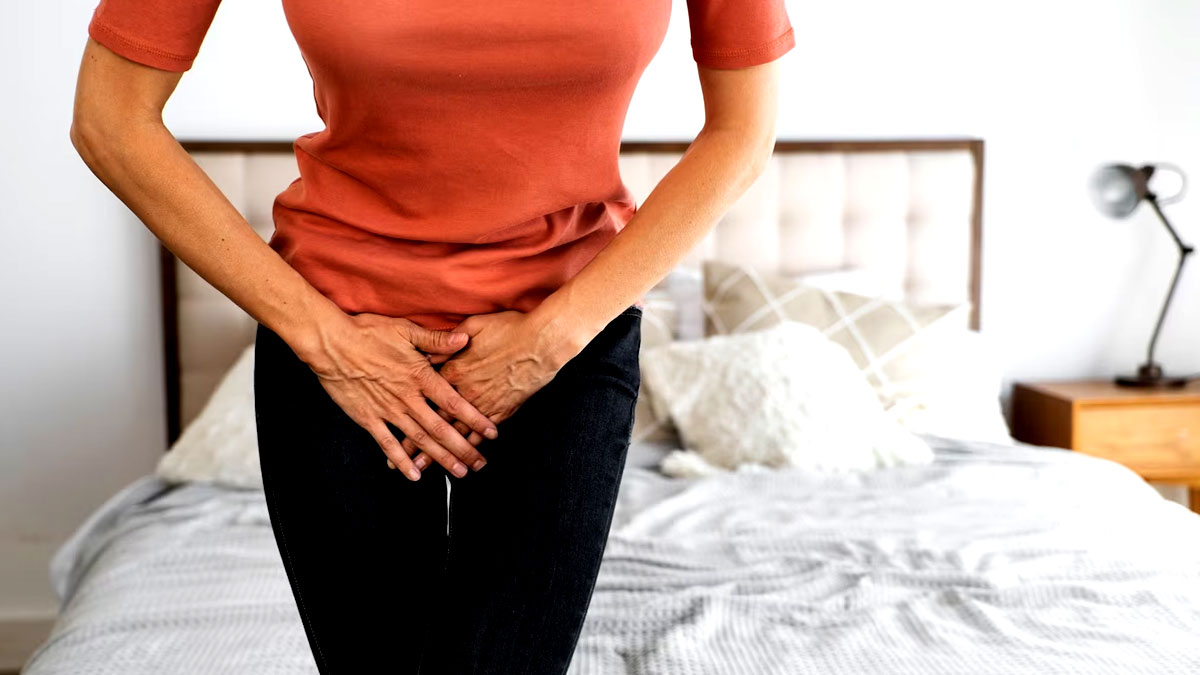

Urine leakage while sneezing is also called stress urinary incontinence (SUI). It’s a frequent problem, particularly among women, although it can afflict people of all ages and genders. We will look at the causes, symptoms, diagnosis, and treatment options for this illness in this post to help you better understand and manage it.
The most common cause of incontinence, according to the National Institute of Ageing, is weak bladder and pelvic floor muscles. These muscles, which support the bladder and rectum, can weaken with age, pregnancy, childbirth, or surgery. When the muscles become weak, they are unable to hold the bladder and rectum closed, resulting in leaking.
Stress Urinary Incontinence
Stress urinary incontinence is a type of urinary incontinence characterised by involuntary leakage of urine during activities that increase abdominal pressure, such as sneezing, coughing, laughing, lifting, or exercising. It occurs when the pelvic floor muscles and the sphincter that control the bladder become weakened or damaged, making it difficult to hold in urine during these moments.
“Urge incontinence can be caused when our bladder muscles become overactive. In this condition a person feels a sudden and strong urge to urinate and is unable to hold it in,” Dr Sadhna Singhal, senior consultant, obstetrics and gynaecology.
Causes of SUI
Several factors can contribute to the development of stress urinary incontinence:
- Pregnancy and Childbirth: The stress of pregnancy and childbirth can weaken the pelvic floor muscles, leading to SUI, particularly in women.
- Aging: As we age, the muscles and tissues that support the bladder may weaken, increasing the risk of SUI.
- Hormonal Changes: Reduced estrogen levels in menopause can lead to a loss of muscle tone and SUI in women.
- Obesity: Excess weight puts added pressure on the bladder and pelvic floor muscles, making SUI more likely.
- Chronic Cough: Conditions like chronic bronchitis or smoking-related cough can exacerbate SUI.
Symptoms
The primary symptom of SUI is the unexpected leakage of urine during activities that increase abdominal pressure. Other common signs and symptoms include:
- Frequent urination
- The sudden urge to urinate
- The need to wear pads or protective garments
- Anxiety and embarrassment related to the condition

Diagnosis
If you suspect you have SUI, it’s essential to consult a healthcare provider. They will typically conduct a thorough medical history review and may perform tests such as a pelvic exam, urine analysis, or urodynamic testing to assess the severity and cause of your incontinence.
Also read: What Does The Smell of Urine Tell About The Overall Health?
Treatment Options
Treatment for SUI depends on its severity and the underlying causes. Here are some common treatment options:
- Lifestyle Changes: Maintaining a healthy weight, avoiding smoking, and practising pelvic floor exercises or Kegels can help improve symptoms.
- Physical Therapy: Pelvic floor physical therapy with a specialised therapist can be beneficial in strengthening pelvic muscles.

- Medications: In some cases, medications can help alleviate SUI symptoms by increasing muscle tone in the urethra and bladder.
- Medical Devices: A vaginal pessary or urethral insert can provide support to the bladder and reduce leakage.
- Surgery: For severe cases, surgical options like a sling procedure or bladder neck suspension may be recommended to provide additional support to the bladder.
Urine leakage while sneezing, also known as stress urine incontinence, is a frequent ailment that can have a negative influence on one’s quality of life. If you encounter these symptoms, you must seek medical attention immediately. Many people can effectively manage and improve their SUI with the correct diagnosis and therapy, regaining confidence and comfort in their daily lives. Remember that you are not alone, and assistance in dealing with your disease is available.






































/cloudfront-us-east-1.images.arcpublishing.com/gray/FO6TQDMGRHEUPJA5JEIUMOYMEU.com)


